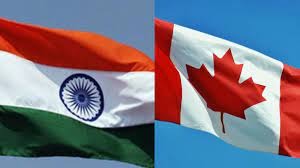Muslims in Malaysia and Indonesia abstain from eating Israeli dates during Ramadan
NEW DELHI: A growing consumer campaign against Israeli dates is gaining traction as Muslims in Malaysia and Indonesia commemorate Ramadan. According to a South China Morning Post story, the campaign, which is quickly taking off via chat groups, attempts to inform people about the availability of Israeli dates in marketplaces. The campaign’s concern is that these dates may be sold to unsuspecting purchasers in these mostly Muslim nations.

Malaysian government and consumer activities
The matter has caught the attention of the Malaysian government, which prompted a search on a warehouse in Klang Port, Selangor, during which 73 boxes of medjool dates that were allegedly imported from Israel were seized by the police. The minister of domestic commerce and cost of living for Malaysia, Armizan Mohd Ali, said, “We view this issue seriously and will take strict action against those who mislead consumers.” This move highlights Malaysia’s stringent regulatory procedures against unlawful imports and is in line with the country’s long-standing trade restrictions against Israel.
The national newswire of Malaysia warned people on social media not to buy boycotted products ahead of Ramadan, citing dates from Israel, the West Bank, and the Jordan Valley in particular. This has resulted in an increase in social media campaigns in Malaysia warning people not to unintentionally buy dates that are grown in Israel and advocating for a wider boycott of goods that support Israel.
Indonesian religious and societal reactions
Similar sentiments have been expressed by religious officials in Indonesia, the nation with the biggest Muslim population in the world, who have called for a boycott of Israeli dates. Labeled as “haram” or banned, the Indonesian Council of Ulema (MUI) and Nadhatul Ulema, the biggest Muslim mass organization in the nation, have released statements warning Indonesians to stay away from dates that come from Israel or the West Bank.
Indonesian customers continue to express genuine anxiety about unintentionally buying Israeli goods, even in spite of certain merchants’ claims to have no commercial relationships with Israeli firms. Many are choosing dates with clear labels in response to religious prohibitions, making sure they are not unintentionally aiding the Israeli market.
This collective movement, which emphasizes solidarity with Palestine and a rising awareness of the sources of bought commodities, constitutes an important consumer attitude during Ramadan in Malaysia and Indonesia.







